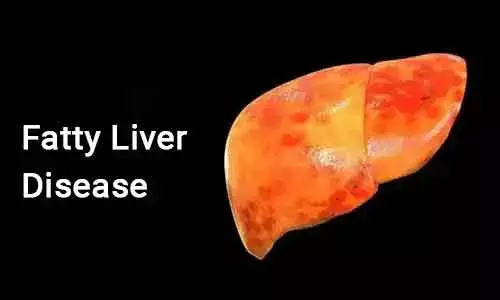- Home
- Medical news & Guidelines
- Anesthesiology
- Cardiology and CTVS
- Critical Care
- Dentistry
- Dermatology
- Diabetes and Endocrinology
- ENT
- Gastroenterology
- Medicine
- Nephrology
- Neurology
- Obstretics-Gynaecology
- Oncology
- Ophthalmology
- Orthopaedics
- Pediatrics-Neonatology
- Psychiatry
- Pulmonology
- Radiology
- Surgery
- Urology
- Laboratory Medicine
- Diet
- Nursing
- Paramedical
- Physiotherapy
- Health news
- Fact Check
- Bone Health Fact Check
- Brain Health Fact Check
- Cancer Related Fact Check
- Child Care Fact Check
- Dental and oral health fact check
- Diabetes and metabolic health fact check
- Diet and Nutrition Fact Check
- Eye and ENT Care Fact Check
- Fitness fact check
- Gut health fact check
- Heart health fact check
- Kidney health fact check
- Medical education fact check
- Men's health fact check
- Respiratory fact check
- Skin and hair care fact check
- Vaccine and Immunization fact check
- Women's health fact check
- AYUSH
- State News
- Andaman and Nicobar Islands
- Andhra Pradesh
- Arunachal Pradesh
- Assam
- Bihar
- Chandigarh
- Chattisgarh
- Dadra and Nagar Haveli
- Daman and Diu
- Delhi
- Goa
- Gujarat
- Haryana
- Himachal Pradesh
- Jammu & Kashmir
- Jharkhand
- Karnataka
- Kerala
- Ladakh
- Lakshadweep
- Madhya Pradesh
- Maharashtra
- Manipur
- Meghalaya
- Mizoram
- Nagaland
- Odisha
- Puducherry
- Punjab
- Rajasthan
- Sikkim
- Tamil Nadu
- Telangana
- Tripura
- Uttar Pradesh
- Uttrakhand
- West Bengal
- Medical Education
- Industry
Eating less improves prognosis of liver cancer due to fatty liver

Liver cancer from too much fat accumulation in the liver has been increasing in many countries including Japan. In order to change this unfortunate state of affairs, it is important to improve the prognosis of non-alcoholic fatty liver disease. Most often the cause of fatty liver is overeating and lack of exercise. Fatty liver is often improved through eating less, getting more exercise, and reducing body weight. Therefore, the research group led by Shinshu University graduate student Fangping Jia posed the question, "Can eating less also suppress liver cancer caused by fatty liver?"
An international research team led by Shinshu University School of Medicine were able to show that reducing food intake by 30%, or eating until you are just 70% full is effective in reducing the likelihood of developing liver cancer from fatty liver. Fatty liver is a very common disease that can lead to liver cirrhosis and cancer. The team observed the incidence of fatty liver-related liver tumors in mice with the hepatitis C virus core gene and demonstrated the fall in the occurrence of liver cancer from 41% to 8% over a 15 month period, simply through dietary restriction.
Although there have been studies that showed the connection between obesity, fatty liver and hepatocellular carcinoma, the impact and mechanism of dietary restriction on cancer was not well understood before this study. Reducing food intake suppresses cell proliferation, oxidative/ER stress, inflammation, senescence and insulin signaling while increasing autophagy. Inflammation and oxidative/ER stress creates an environment in the body that is conducive to the development of abnormal cells. Autophagy is the mechanism in which the body cleans out damaged cells, reducing the likelihood of developing cancer.
Shinshu University School of Medicine Associate Professor Naoki Tanaka, corresponding author of the study hopes to eradicate liver cirrhosis and cancer from fatty liver through providing personalized dietary guidance and the promotion of the eating habit until you are just 70% full. In three other studies conducted by Associate Professor Tanaka using the same mouse model, the effect of the diet rich in cholesterol, saturated fats and trans-fats were shown to increase the incidence of liver tumors and elucidated the mechanism in which this occurs. Associate Professor Tanaka speculates that not only does the amount of fat intake matter, but the "quality" of dietary fats that lead to cancer. He hopes to elucidate this further in future studies.
Many previous studies have also shown that dietary restriction delayed the progression of cancer in humans through slowing down the rate of aging. There is a Chinese proverb that says, "to live a long and healthy life, eat until the stomach is 70 percent full." Then you will live healthy, and it might lead to longevity.
https://www.karger.com/Article/FullText/508308
Hina Zahid Joined Medical Dialogue in 2017 with a passion to work as a Reporter. She coordinates with various national and international journals and association and covers all the stories related to Medical guidelines, Medical Journals, rare medical surgeries as well as all the updates in the medical field. Email: editorial@medicaldialogues.in. Contact no. 011-43720751
Dr Kamal Kant Kohli-MBBS, DTCD- a chest specialist with more than 30 years of practice and a flair for writing clinical articles, Dr Kamal Kant Kohli joined Medical Dialogues as a Chief Editor of Medical News. Besides writing articles, as an editor, he proofreads and verifies all the medical content published on Medical Dialogues including those coming from journals, studies,medical conferences,guidelines etc. Email: drkohli@medicaldialogues.in. Contact no. 011-43720751


